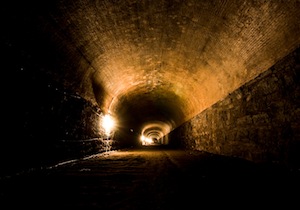 In my previous Blog, I looked at hope from a psychological perspective. This writing will focus on the spiritual dimension of hope and the experience of depression.
In my previous Blog, I looked at hope from a psychological perspective. This writing will focus on the spiritual dimension of hope and the experience of depression.
Hopelessness is a common feature of depression. During the depths of my episodes, it was my constant companion. I believe that hopelessness is strongly connected to a sense of helplessness: no matter how sincere or noble our efforts to overcome depression, we don’t. We hit a wall; a wall of spiritual darkness. In this space, there is the sense that God doesn’t care about us, that he has abandoned us, or that he doesn’t even exist. If he does exist, why would he allow me and others to suffer so? It is the pointlessness of our suffering which seems so hard a cross to bear.
Barbara Crafton, minister and author of the book, “Jesus Wept,” captures this sense of sorrow:
“Religious people want there to be meaning in everything. Randomness is hard on us: that things just happen for no reason sometimes brings us closer than we want to be to the possibility that we’re not central to much of anything . . . . And so we hope and expect the universe to have a message for us. Let there be something just for me, we pray and expect, something that will make it all make sense. A plan.
And yet, the crushing weight of depression lies precisely in the meaninglessness that characterizes it. A flat voice within contradicts every hopeful thought: live with it long enough, and the hopeful thoughts don’t even bother surfacing. Muffled and parched, bereft of any vision that might ratify your journey or give it a reasonable goal, you trudge on and on for no particular reason other than that you know you’re supposed to.”
What is our spiritual response to this state of affairs? As we drift out to sea, we long for a voice that will show us a way home. We may go long periods of our lives with no such beacon. And then, it happens. We have a sense of God’s presence in the midst of our pain. Jesus certainly understood such pain. Contrary to the movement in some Christian circles to paint Him as a salesman of happiness, he was a man “well acquainted with sorrow.” His life suggests that in a spiritual life we are not changed from some sad state into, necessarily, a happy one. That’s not the point. God doesn’t want some happy, well-adjusted and self-satisfied person per se. He wants a real and authentic person. Such authenticity often comes at a very high price. We must walk through suffering.
The Twenty Third Psalm says:
Even though I walk
through the valley of the shadow of death,
I shall fear no evil,
for you are with me;
your rod and your staff,
they comfort me.
In one form or another, all humans most walk through “the valley of the shadow of death.” There is simply no escaping the profound experience of suffering. Depression is one such form of suffering. It is a valley; a trench from which we so often feel there is viable exit. During depression we stop walking through that valley. We are immobilized by our pain and can’t step forward. The “rod and staff” of God, however, tells us that depression is a “shadow”. It doesn’t have the final say. God does. We must not stay stuck in the valley, but keep walking.
As we walk through our days, what are rods and the staffs that comfort us? If they are the false sirens of success – of money, status symbols and power – they may temporarily satisfy us. But they won’t sustain us. At some point – it is hoped – we will recognize them for the phantoms that they are.
Whatever our spiritual orientation, chose a spiritual sustenance that isn’t borne of your small sense of self with its limited plans and agendas. But rather a grander hope and vision of which we are intimately connected to. A view of ourselves not distorted by depression, but by how God views us. We are indeed precious in his sight, His children. We can hope in his vision and plans for us.
In closing, sustenance for the day from Saint Ignatius Loyola:
O Christ Jesus,
when all is darkness
and we feel our weakness and helplessness,
give us the sense of Your presence,
Your love, and Your strength.
Help us to have perfect trust
in Your protecting love
and strengthening power,
so that nothing may frighten
or worry us,
for, living close to You,
we shall see Your hand,
Your purpose, Your will through all things.
Amen.











